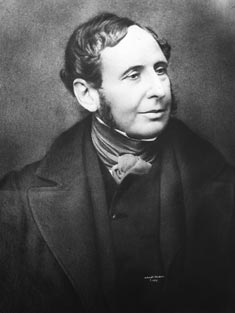Fitzroy and the Welsh Guards
The worst incident that took place involving the Task Force during the Falklands War happened at Fitzroy on 8 June 1982 and saw two ships - Sir Galahad and Sir Tristram - bombed and many men killed.
The bombings of two ships at Fitzroy during the Falkland Islands War saw the conflict’s largest single loss of life involving the Task Force. Fitzroy, which was named after Vice-Admiral Robert FitzRoy, an English officer of the Royal Navy, lay to the southwest of Port Stanley, the capital of the Falkland Islands. On 8 June, two ships, Sir Tristram and Sir Galahad, both of which were anchored ready to be relieved of their cargo and supplies, were bombed. Fifty-four men, mainly Welsh Guard Infantry soldiers that had been based on Sir Galahad, were killed, while a further 46 men were seriously injured.
Prior to the attack, Major Ewan Southby-Tailyour, a Royal Marine officer based onshore, had requested that the soldiers get onto dry land as soon as they could as he had been worried about Argentine observation posts that were known to be located close by. However, with no warning, bombs from A4 Skyhawks were dropped on the ships and landed on Sir Tristram at 17.15. Two Mirage aeroplanes dropped more bombs at 17.35, with Sir Galahad firmly in their sights. One of the bombs exploded on the ship, lighting its ammunition hold and killing soldiers on board. Others were left with serious burns. British Sea King helicopters managed to ward off further deaths by hovering over the deck of Sir Galahad to let their winchmen to bring the injured men on board.

These bombings meant that the Welsh Guards were no longer able to be depended on as a fighting unit as many of their men and their supplies had been lost. Some of the reasons given for why there was so little warning given before the attack took place include a suggestion that a Rapier battery had been put in place to cover the anchor point, however it was faulty, meaning that it was not in action when the attack happened. Another reason was that the helicopters that were meant to be used to bring the men in from the ships had been lost when the ship on which they were based, the Atlantic Conveyor, had been hit by an Exocet missile.
Other reasons given as to why the attack was allowed to take place with seemingly little protection for the task Force were linked to the Government, who were said to be scared of more military losses. As ships had been lost at San Carlos Bay already, it was decided that Sir Galahad and Sir Tristram were to travel to Bluff Cove minus the usual naval escort. The Argentine forces, who would have likely seen that the ships were without an escort, would then have seen the ships as a far more tempting prospect to attack.
MLA Citation/Reference
"Fitzroy and the Welsh Guards". HistoryLearning.com. 2025. Web.
